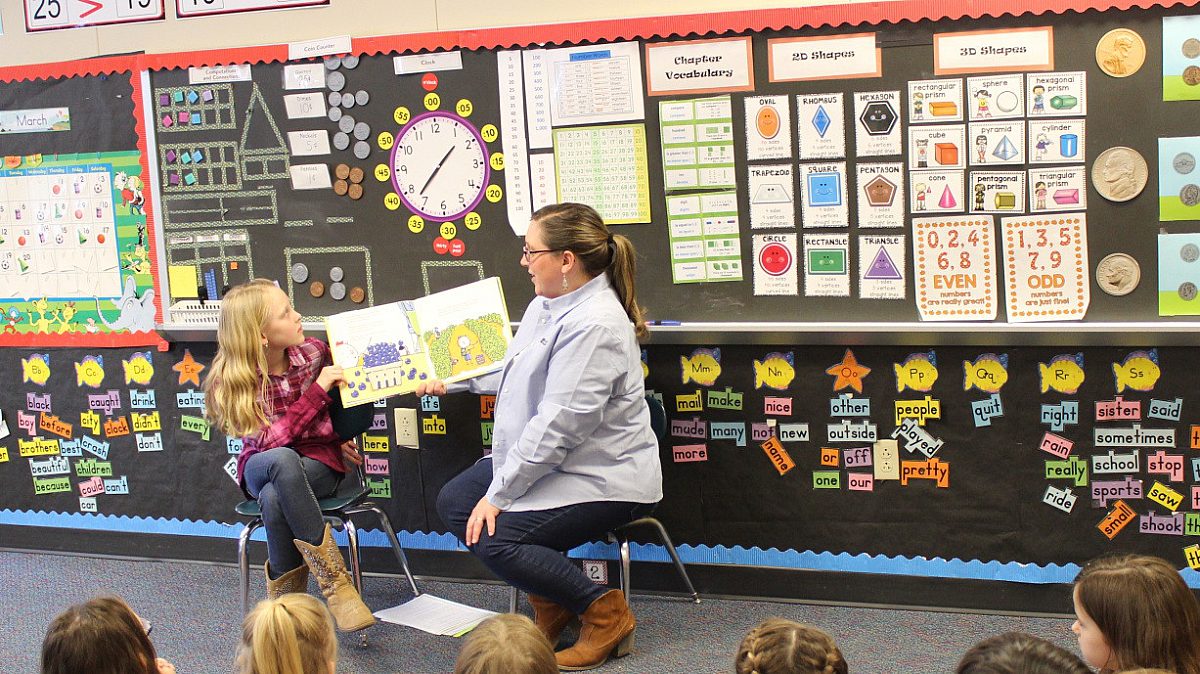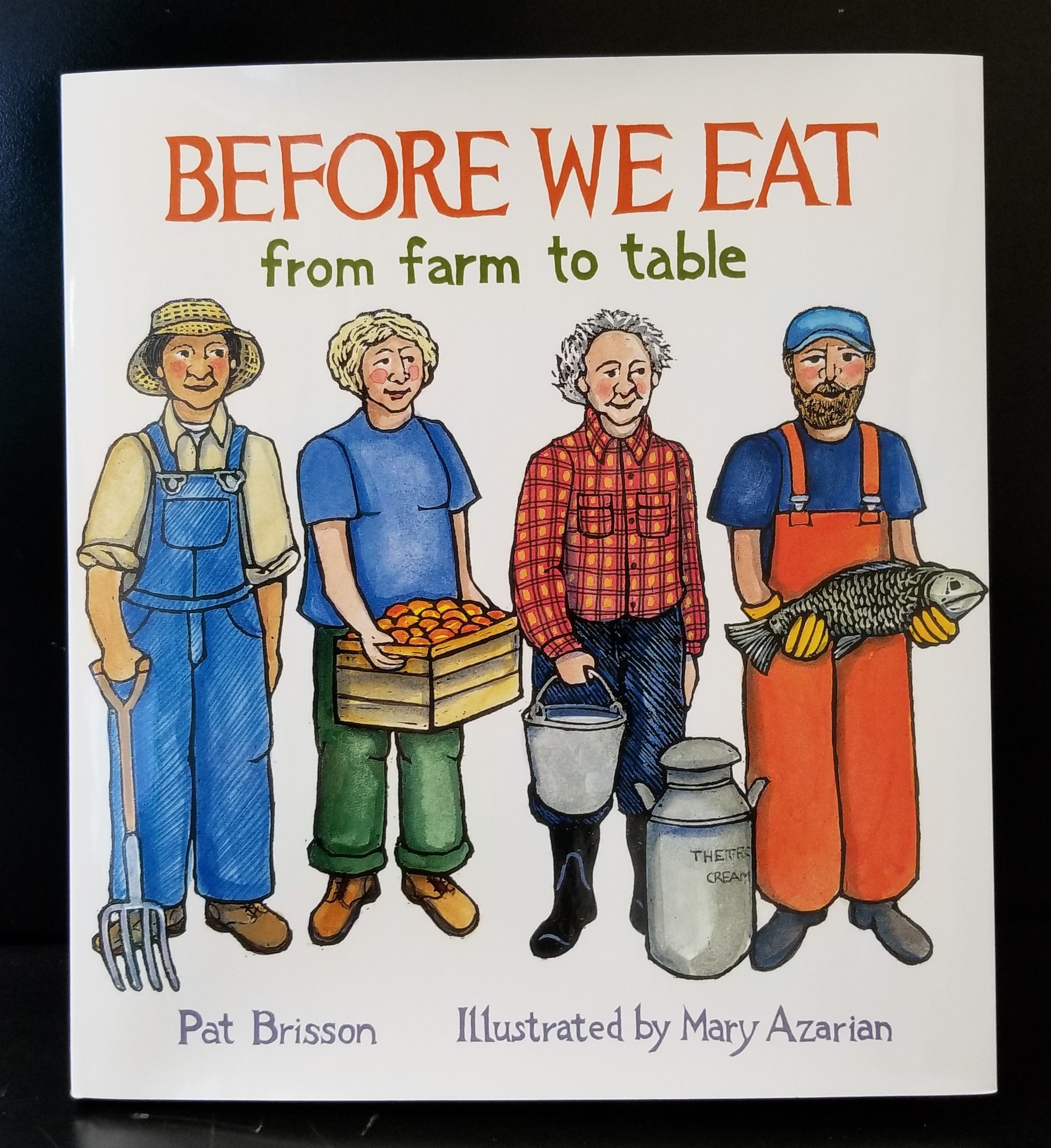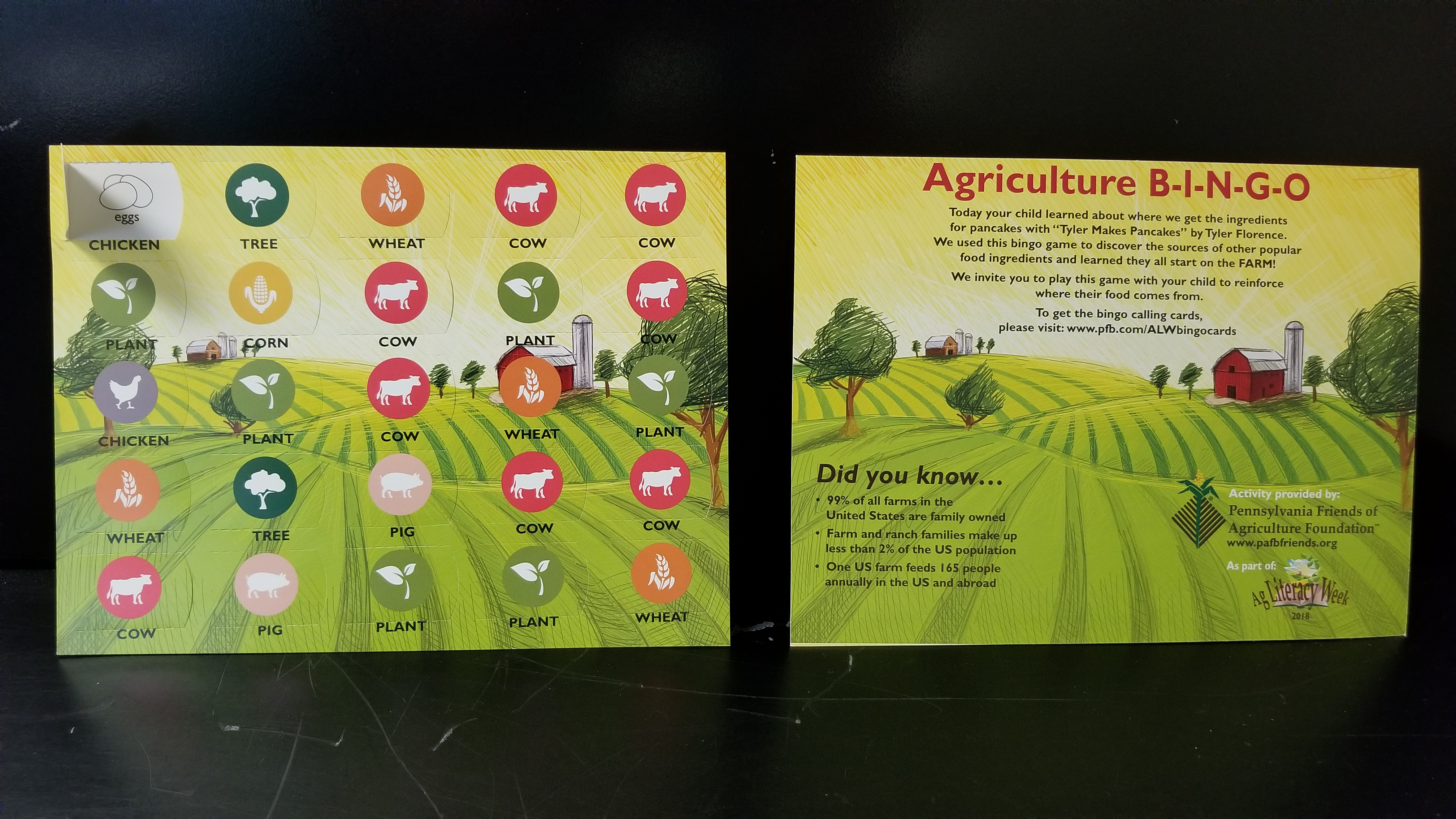Pennsylvania's Ag Literacy Week Brings Farming to the Classroom
Erin Anthony
Director, Communications

photo credit: Pennsylvania Farm Bureau, Used with Permission
Erin Anthony
Director, Communications
Since launching Ag Literacy Week in 2017, the Pennsylvania Friends of Agriculture Foundation, a charitable organization supported and managed by Pennsylvania Farm Bureau, has connected volunteers from the agricultural community with more than 34,000 students across the state. Through the program, farmers, ranchers, industry representatives, FFA teachers and students, and others supportive of agriculture share the designated Ag Literacy Week book with kindergarten, first grade or second grade classrooms during the third week in March.
“The volunteers not only read the book to the students and lead the class in a related activity, but they share personal stories about their farms, programs or other connections to agriculture,” explained Sue Lassi, assistant executive director of the Pennsylvania Friends of Agriculture Foundation. The book is then donated to the classroom teacher along with additional lessons to expand student learning.

The 2017 book, “Before We Eat: From Farm to Table” by Pat Brisson, shows that food doesn’t just appear in our refrigerator or on our table.
The 2018 book, “Tyler Makes Pancakes!” by Tyler Florence, connects a common breakfast food, pancakes, to the crops and farm animals that provide the necessary ingredients.
As part of a multi-step book selection process, the Foundation first collected a number of books that are appropriate for the kindergarten through second grade students they are targeting. The books were then handed off to an appointed committee to make the final selection. The committee was guided by a rubric that focuses on readability (length, visual elements, content) and the agricultural connection (an accurate portrayal of agriculture, an obvious ag link).
Once the selection was made, the Foundation developed a book plate recognizing the program’s sponsors and showcasing the program logo. Volunteer readers included the book plate as part of the classroom book donation.
The Foundation also has a landing page within its website dedicated to all things Ag Literacy Week, including the registration of readers, donor recognition, promotional materials and surveys.
The Foundation sought volunteer readers who are involved with Pennsylvania agriculture, were willing to donate $10 for the book and 30 minutes of their time to read in the classroom.
“To make this work, you have to get your volunteers out. We tapped into our county Farm Bureaus, committees, our board of directors, commodity groups and FFA and 4-H chapters,” Lassi said.
A two-sided promotional piece addressed potential volunteer leaders on one side and K-2 teachers on the other. Both sides featured the Ag Literacy Week logo and the website address.
“We handed the piece out to potential volunteer readers and then when they went to approach a teacher to ask if it was okay to share the book in the classroom, they could flip it over and show the classroom teacher relevant details, like the potential dates for a classroom visit, how much time the visit would entail and what the students and teachers should expect to experience,” she explained.

The Foundation also developed a classroom activity to enhance the book’s message, as well as a bookmark to inform parents of Ag Literacy Week and to, again, recognize the event sponsors. A detailed instruction sheet helped volunteers with what materials they would need, visit preparation, visit logistics, reading hints, activity instructions and more.
In 2018, a special donation to the project allowed the Foundation to create Learning Center Cards, which the readers donated to the classroom along with the book. The cards addressed four learning areas: language arts, math, science and writing.
Ag Literacy Week not only established a connection between farmers and students, but in many cases it enhanced Farm Bureau members’ relationship with the organization.
“For some of our volunteers, it was the first time they participated in a Farm Bureau activity. Quite a few people finally got active in their membership by participating in this ag literacy program, and they continue to be involved,” noted Lassi.
For county and state Farm Bureaus considering a similar program, Lassi advised them to budget for shipping products, like boxes, envelopes and labels, which can be expensive. Delivering as many reader packets as possible during Farm Bureau meetings prior to the event can help cut costs.
In addition, Lassi said, figuring out how many books, activity pieces, bookmarks and learning cards is difficult during the first several years. In 2017, the program’s first year, 193 readers went to 421 classrooms. Participation ramped up significantly in 2018, with 272 volunteers reading in 1,229 classrooms.
Ag Literacy Week garnered Pennsylvania Farm Bureau a 2017 New Horizon Award from the American Farm Bureau Federation. The award honors state Farm Bureaus with the most innovative new programs. The award is presented annually at the AFBF Annual Convention.
Top Issues
VIEW ALL